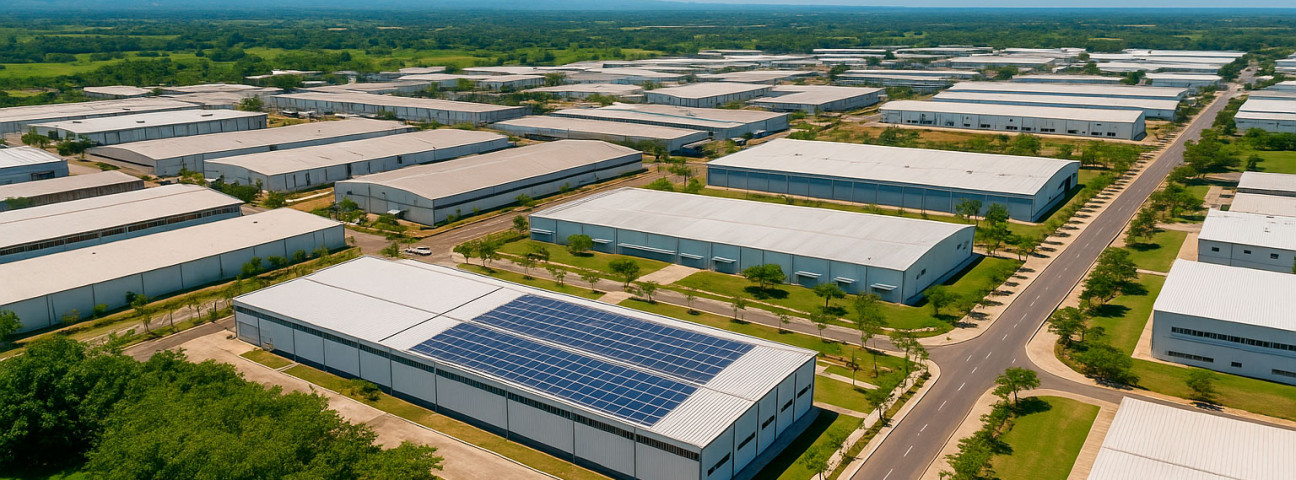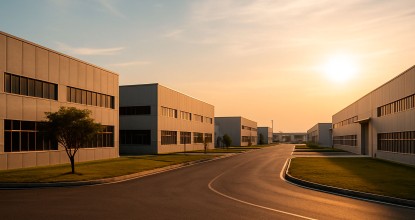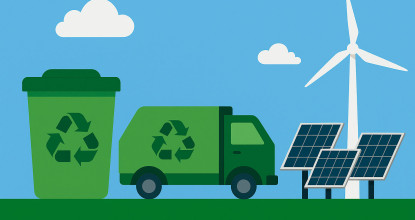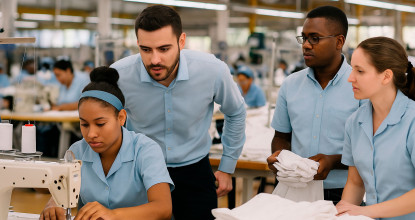In the heart of the Caribbean, nestled in the border town of Ouanaminthe, Haiti, stands CODEVI — an industrial park that has become a model for sustainable industrial development in the region. As global industries shift toward greener and more ethical production standards, CODEVI leads the way by integrating economic growth with environmental responsibility and social impact.
A Vision Rooted in Sustainability
Founded in 2002, CODEVI (Compagnie de Développement Industriel) was established with a clear purpose: to generate quality employment opportunities while fostering sustainable economic development. Today, the park spans over 6 million square feet and hosts more than 30 industrial facilities, becoming a strategic destination for textile, logistics, and manufacturing operations in the Caribbean.
But CODEVI is more than just an industrial hub — it’s a long-term sustainability project. From the beginning, the park has prioritized green growth, aligning its infrastructure and operations with international environmental standards.
Environmental Innovation in Practice
CODEVI’s commitment to sustainability is evident across several key initiatives:
-
- Renewable Energy: Solar Lighting Project
Through the Bright Horizon initiative, the park has installed 300 solar-powered streetlights covering nearly 12 kilometers, significantly reducing energy consumption and dependence on fossil fuels. This project not only improves public safety but also contributes to carbon emissions reduction.
-
- Water Management
CODEVI has achieved a per capita water consumption rate of 12.07 gallons per day, well below the World Health Organization’s average of 16.5 gallons. This has been made possible through:
Modernization of water distribution systems
Regular staff training on efficient water use
Continuous monitoring and performance reporting
-
- Waste Management and Green Spaces
The park actively operates Carplar, a waste processing center that recycles plastics, cardboard, and iron. In addition, organic waste is composted and repurposed as natural fertilizer to maintain over 330,000 square feet of green space within the park and nearby communities. These efforts help close the loop on waste while promoting environmental regeneration.
Community and Economic Impact
CODEVI’s sustainability approach extends beyond environmental concerns — it also drives social and economic impact. By creating thousands of jobs, offering professional training, and investing in early childhood care and healthcare services, the park plays a vital role in strengthening local communities.
Programs like L’Ekol, a vocational training center, and Tipa Tipa, an onsite childcare facility, are designed to support the holistic well-being of employees and their families. These services enhance productivity, improve quality of life, and build long-term community resilience.
Leading by Example in the Region
In the broader Caribbean context, CODEVI stands out for its scale, efficiency, and ethical commitment. While many industrial zones in the region focus exclusively on cost-competitive production, CODEVI differentiates itself by offering:
-
-
- Modern, eco-conscious infrastructure
- A socially responsible ecosystem
- Transparent partnerships with global brands
-
As international companies seek sustainable manufacturing partners, CODEVI’s operational model positions it as a preferred destination for ethical sourcing in the Western Hemisphere.
Looking Ahead: A Greener Industrial Future
CODEVI’s roadmap for the coming years is ambitious. The park aims to:
-
-
-
- Reach Zero Waste status through expanded recycling and composting programs
- Increase solar energy capacity beyond its current 1.5 MW infrastructure
- Expand green construction, integrating sustainable materials and smart technologies
-
-
Grow community programs, extending the reach of healthcare, childcare, and professional development to even more local families.
These goals align with the United Nations’ Sustainable Development Goals (SDGs), particularly in areas such as decent work, responsible consumption, clean energy, and community empowerment.
As industries worldwide embrace the urgency of climate change and social responsibility, CODEVI offers a blueprint for how industrial development can be both profitable and sustainable. Through its commitment to green infrastructure, community development, and innovation, CODEVI is not only driving growth in Haiti — it is redefining what sustainable industry looks like in the Caribbean and beyond.




